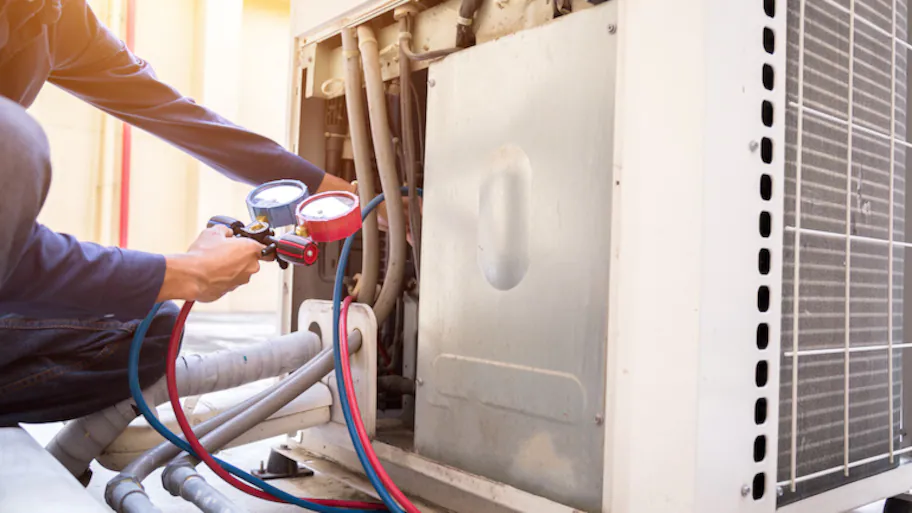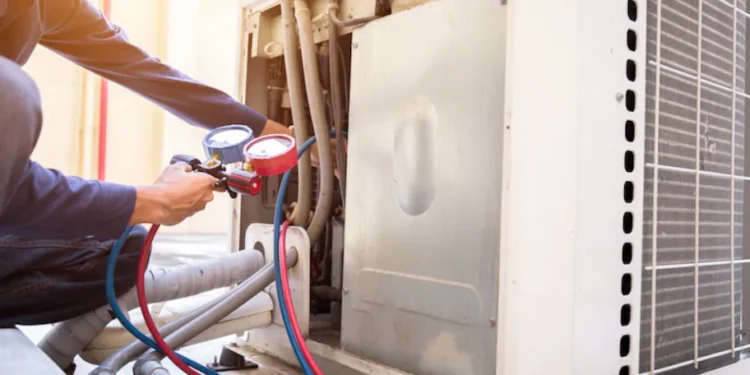Maintaining an air conditioner is crucial for ensuring its efficiency, effectiveness, and longevity. Regular maintenance not only helps in prolonging the life of an AC unit but also in saving money on energy bills and costly repairs. This blog post explores the various types of air conditioner maintenance that homeowners and building managers can undertake to keep their cooling systems running smoothly for years to come.
Understanding AC Maintenance
Before diving into the specific types of maintenance, it’s important to understand that AC maintenance can be categorized into several types, each vital for different aspects of the unit’s operation and efficiency. Regular maintenance ensures that your AC unit is performing at its best, providing comfortable indoor temperatures while keeping energy consumption in check.
Regular Filter Replacement
One of the simplest yet most effective forms of maintenance is regularly replacing or cleaning the air filters. Clogged or dirty filters restrict airflow, significantly reducing a system’s efficiency and potentially leading to more serious mechanical problems. Depending on the type of filter and the usage of the unit, filters should be cleaned or replaced every one to three months.
Coil Cleaning
The AC unit’s evaporator and condenser coils accumulate dirt over their lifetime. This dirt reduces airflow and insulates the coil, diminishing its ability to absorb heat. To avoid these issues, the coils should be checked and cleaned at least once a year. This helps in maintaining the efficiency and prolonging the lifespan of the unit.
Checking and Sealing Duct Leaks
Duct leakage can significantly reduce your system’s efficiency. Inspecting the ductwork for leaks and having them sealed is a critical maintenance task that can prevent loss of cooled air and ensure your AC system works efficiently, providing uniform cooling throughout the space.
Refrigerant Level Checks
The refrigerant level in your AC unit must be just right for it to function efficiently. Too much or too little refrigerant can lead to a less efficient system and increased energy costs. A professional can check the refrigerant levels and recharge the system if necessary.

Thermostat Calibration
Ensuring that your thermostat is working correctly and is accurately calibrated can significantly affect your AC unit’s performance and your home’s overall comfort. It’s advisable to consider upgrading to a programmable thermostat if you haven’t already, as it can contribute to better system performance and energy savings.
Professional Annual Inspections
While many aspects of AC maintenance can be DIY, a professional inspection can catch issues that might be missed. These inspections can include checking the motor, assessing the blower, inspecting the drain line, checking the refrigerant levels, and verifying the system’s electrical connections and contacts. An annual inspection by a qualified technician can help ensure that your system operates efficiently and can prevent unexpected breakdowns.
Condensate Drain Cleaning
The AC unit’s condensate drain can become clogged over time, which might lead to water damage and increased humidity levels inside your home. Regularly checking and cleaning the condensate drain line is important to prevent these issues.
Knowing When It’s Time to Call a Professional
While regular cleaning and inspection can be performed by homeowners, there are situations where it’s best to call in a professional. This includes any repairs, refrigerant recharges, electrical issues, or when you’re unsure about performing a maintenance task. A professional HVAC technician can provide the expertise needed to keep your AC unit in top condition.
In conclusion, regular maintenance is key to prolonging the life of an AC unit. By understanding and performing these different types of maintenance, homeowners can ensure their AC units function efficiently and effectively for many years. However, when in doubt, it’s always best to consult with a professional to avoid unintentional damage or to address complex issues. Remember, an ounce of prevention is worth a pound of cure, especially when it comes to maintaining your air conditioning system.





